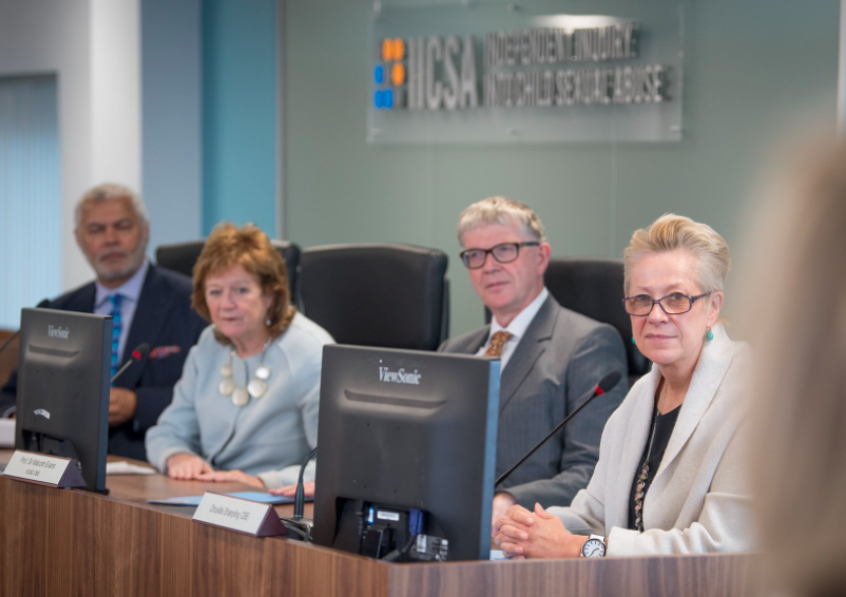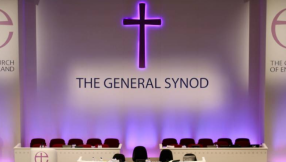There is talk in the Church of England of lessons that need to be learnt from the Independent Inquiry into Child Sexual Abuse (IICSA) but some of the lessons suggested are open to question.
One lesson that does not appear to have been learnt is the need for church leaders to keep themselves fully informed about events in the wider church. It wasn't the Boston Globe that first broke the news of child abuse in the Catholic Church (although it got most of the credit thanks to a film made about it) but the National Catholic Reporter.

Jason Berry started reporting on clergy sex abuse in NCR in 1986. This radical Catholic paper published in Kansas City, Missouri, is one of the few religious newspapers with a good track record of investigative journalism. Anyone who read Berry's reports or the book he wrote would know the dangers of trying to hide abuse or moving abusers from one parish to another.
Philip Jenkins soon revealed this was not a purely Catholic or American problem in his book Pedophile Priests. He pointed out that the worst abuser in America was not a priest but a Pentecostal pastor who had abused hundreds of boys.
By the time I moved to Australia as a bishop in 1995 the dangers of clergy abuse and the ways not to deal with it were clear to anyone who read more than in-house publications. Subsequent events have revealed that some of my episcopal colleagues had not learnt the necessary lessons.
It's no surprise that the establishment of the Church of England thinks the revelations at IICSA show the need for more effective management. This was a theme of an editorial in the Church Times. Criticism by Fiona Scolding QC that the diocese betrayed a 'culture of amateurism' was quoted. There may be some truth in this but it is not certain that training in modern management theory is the answer.
The reign of Rex Tillerson at the US State Department should serve as a warning here. As CEO of ExxonMobil Tillerson reached a higher position in the oil industry than Justin Welby but his attempt to introduce private industry management practices to Washington proved disastrous. He set out to 'redesign' the State Department by reducing staff by eight per cent, readily accepting a budget cut target given him by the White House.
As one business school professor put it, writing in The Atlantic, Tillerson displayed a 'delight for the eye-glazing jargon of management consulting' but he seemed not to realise that while slashing staff and reducing departments might increase profits in business, it could lead to a catastrophic loss of knowledge and expertise in a body like the State Department. Once gone, it's hard to replace experts on Iran or North Korea.
Being a member of a profession does not just mean mastering a body of knowledge. There are traditions and an ethos that should shape thinking and action. In the case of clergy there is also a spirituality. Management techniques that work in one sector cannot just be transferred to another.
Cathedral deans should not need an MBA to enable them to handle cases of abuse or run a cathedral. An MBA does not increase skills in pastoral care or liturgy; it doesn't improve preaching and teaching or raise awareness of how to relate a cathedral to the local community or improve the quality of music. A cathedral does need staff trained in accountancy whose voices are heard but it is too common in Britain today to think that accountants are the best people to run hospitals or other organisations.
Finally what are we to say about abuse and the theology of forgiveness? Linda Woodhead claims that 'a faulty doctrine of forgiveness was used by abusers to salve their consciences, by officials to move on without dealing with the problem, and by parishioners to marginalise "unchristian" victims and whistleblowers'.
Quite honestly, I have never come across this theology of forgiveness. If someone in confession confesses to a serious sin such as abuse or murder the confessor will normally make absolution conditional on the penitent reporting to the police. This is why forcing clergy to reveal what is told to them in confession is huge mistake. Catholic clergy will never break the seal of the confessional but the threat that attempts will be made to make them do so will stop penitents being frank.
As well as sending the penitent to the police, confessors will also point out that God's forgiveness does not rule out the need for legal penalties or, where appropriate, reparation to victims. Knowing that a pattern of abuse is almost impossible to break, bishops are not being kind or forgiving in moving abusive clergy to another parish. Allowing the law to take its course and then providing some kind of care and counselling for the perpetrator but not a future opportunity of ministry may be the kindest policy.
All this could have been learnt from Jason Berry's reporting 30 years ago.
Paul Richardson is a former Anglican bishop in Papua New Guinea, England and Australia.













